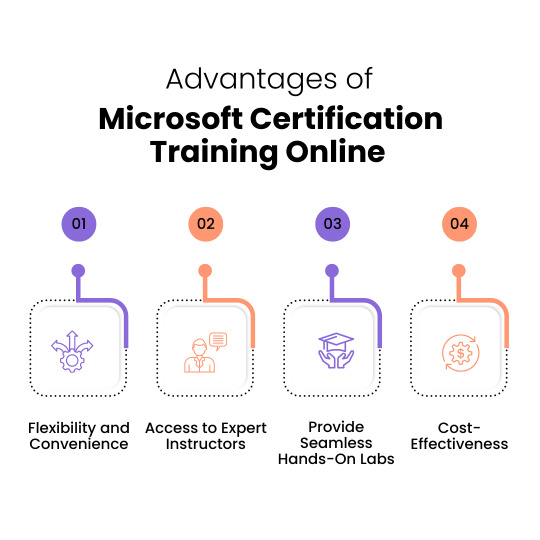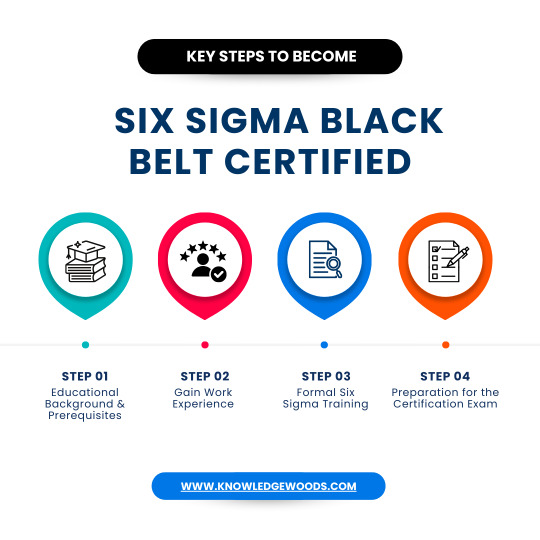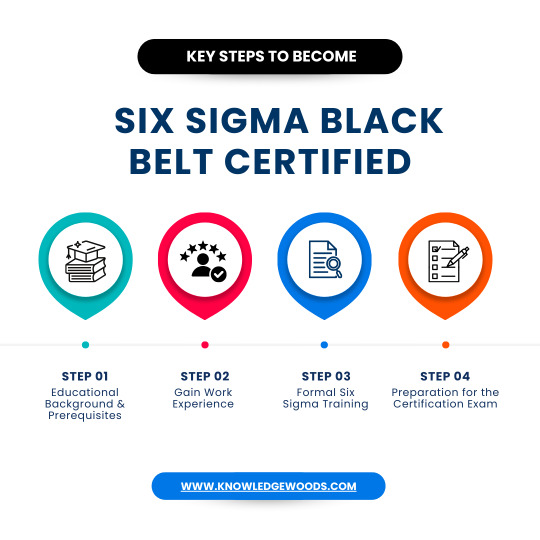#certificationguide
Explore tagged Tumblr posts
Text
Cardiac Care Technician Certification Guide
Struggling to advance your career in healthcare? We've got the solution!
Discover how to become a Certified Cardiac Care Technician and take control of your future.
Are you passionate about making a difference in people's lives but lack the right credentials? Don't let this hold you back any longer! Our comprehensive blog provides everything you need to know about obtaining your certification.
Say goodbye to limited job opportunities and hello to a rewarding career in cardiac care. With our blog information , you'll be on your way to success in no time!
Join hundreds of satisfied individuals who have already transformed their lives with our help. Embrace the chance to excel in both your professional and personal growth.
Ready to embark on this life-changing journey? Take the first step now by clicking on this : Cardiac Care Technician . Don't miss out on this incredible opportunity!

#cardiaccare#healthcarecareer#certificationguide#medicaltraining#careerdevelopment#healthprosperity#successpath#medicalprofessionals#medicalcareers#careeradvancement#healthcareopportunities#dreamjob#reachyourpotential#healthysociety#futuregoals#nurtureyourcareer#medicalaspirations#healthylifestyle#followyourpassion#healthandwellness#hrishiblogbuddhi#blog
1 note
·
View note
Text
Fitness Certifications: How I became ACSM Certified
Fitness Certifications: How I became ACSM Certified
So if your interested in working in the fitness industry, getting a professional certification is a must-do. Whether you want to be a personal trainer, health coach, group exercise instructor or work in a clinical setting, there is a certification that fits all of these positions. Professional certifications will help you secure a job in the field and give you credentials to prescribe exercise.…
View On WordPress
#ACSM#ACSMCEP#ACSMcertified#ACSMCPT#certificationguide#Certifiedpersonaltrainer#Exercise#exercisephysiology#exercisescience#Exercisespecialist#fitnesscertifications#Fitnessindustry#Motivation#professional
0 notes
Text
Supercharge Your Career: Top 10 Learning and Education Certifications
In an era where industries are constantly evolving and technological advancements are reshaping the workforce, the importance of continuous education cannot be overstated. Gaining an edge in the competitive job market requires more than just experience; it demands a commitment to lifelong learning and upskilling. Professional certifications are no longer optional they are essential tools that equip you with the latest knowledge, verify your expertise, and enable you to stay relevant in your chosen field. Whether you're aiming to climb the corporate ladder, pivot to a new industry, or stay ahead of the curve in your current role, certifications offer a structured pathway to success. Below, we explore 10 game-changing learning and education certifications that can significantly impact your future and elevate your career.
1. Google Certified Educator
Link: Google Certified Educator
The Google Certified Educator certification is designed for teachers who want to demonstrate their proficiency in using Google tools in the classroom to enhance teaching and learning. This certification is structured in two levels, allowing educators to showcase their abilities at both foundational and advanced levels.
Details:
Two Levels of Certification: Level 1 certification is aimed at educators who are proficient in using Google tools, while Level 2 is designed for more advanced educators who can innovate and lead using Google’s suite of education tools. Both certifications require passing a rigorous exam that tests an educator’s knowledge and application of tools such as Google Classroom, Drive, Docs, Sheets, Slides, and more.
Innovative Classroom Practices: Certified educators are trained to use Google tools to create dynamic and interactive learning experiences. This includes using collaborative tools to encourage student participation, integrating multimedia into lessons, and organizing digital content for effective teaching.
Ongoing Learning and Community: Google Certified Educators gain access to a global network of like-minded professionals who are dedicated to using technology to enhance education. This community provides opportunities for ongoing learning, collaboration, and sharing best practices in using Google tools in the classroom.
2. AI+ Learning & Development Certification (AICERTs)
Link: AI+ Learning & Development Certification (AICERTs)
Overview: The AI+ Learning & Development Certification, offered by AICERTs, is a cutting-edge program designed to empower learning and development professionals with the skills needed to integrate artificial intelligence into educational and corporate training environments. This certification aims to enhance instructional methodologies, curriculum design, and overall learning experiences through the application of AI.
Core Competencies:
AI-Enhanced Curriculum Design:
Utilizes AI to develop customized learning trajectories.
Employs adaptive learning systems that analyze student performance data to tailor content delivery to individual requirements.
AI-Infused Instructional Design:
Integrates AI technologies into instructional strategies.
Transforms traditional teaching methods into interactive, data-driven experiences, incorporating real-time feedback and immersive learning environments.
Ethical Considerations in AI Education:
Addresses the ethical implications of AI applications in education.
Trains professionals to identify and mitigate biases in AI systems, ensuring equitable and inclusive learning environments.
AI Tools and Technologies:
Introduces various AI tools, such as intelligent tutoring systems, automated grading solutions, and virtual teaching assistants, to support and enhance educational practices.
Practical Implementation:
Emphasizes hands-on experience through practical projects and simulations.
Ensures participants are adept at applying AI solutions in real-world educational settings.
AI in Corporate Training:
Explores the application of AI in corporate training environments.
Focuses on creating customized, impactful training programs to support workforce development and maintain competitiveness in a rapidly evolving technological landscape.
Advantages:
Career Progression: Facilitates access to advanced career opportunities within educational and corporate training sectors.
Skill Enhancement: Equips professionals with a deep understanding of AI's role in augmenting learning processes, making them highly valuable assets in their fields.
Industry Recognition: Positions certified individuals as pioneers in the integration of AI in education, driving innovation and improving educational outcomes.

Use the coupon code NEWCOURSE25 to get 25% OFF on AI CERTS’ certifications. Visit this link to explore all the courses and enroll today.
3. edX Micromasters in Instructional Design and Technology: Innovating Digital Learning
Link: edX MicroMasters in Instructional Design and Technology
As the educational landscape shifts towards online and blended learning environments, there is a growing demand for experts in instructional design and educational technology. The edX Micromasters in Instructional Design and Technology, developed in partnership with the University of Maryland Global Campus, offers a robust curriculum that prepares professionals to design, implement, and evaluate digital learning experiences. This program covers a wide range of topics, including instructional design models, educational theories, digital tools, and e-learning development. One of the key advantages of this Micromasters program is its focus on real-world applications, allowing learners to work on projects that can be directly applied to educational institutions or corporate training programs. Additionally, the credential can serve as a valuable foundation for pursuing a full Master’s degree, providing both academic and career advancement opportunities in a rapidly evolving field.
4. National Board Certification (NBC) by NBPTS
Link: NBC by NBPTS
The National Board Certification (NBC) is an elite certification for educators, provided by the National Board for Professional Teaching Standards (NBPTS), and is considered one of the highest distinctions in the teaching profession in the United States. Unlike standard teaching credentials, NBC is a voluntary certification process that requires educators to demonstrate advanced teaching competencies across four distinct areas: content knowledge, differentiation in instruction, teaching practice and learning environment, and being an effective and reflective practitioner.
Details:
Rigorous Evaluation Process: The certification involves extensive assessments that evaluate a teacher's ability to demonstrate expert-level instructional skills and contribute to student learning in diverse environments. This is achieved through performance-based tasks, including video recordings of classroom interactions, reflective commentaries, and evidence-based assessments of student work.
Career Impact: Educators who earn NBC are often recognized as leaders in their field, which can result in career advancement opportunities such as leadership roles, curriculum development positions, and mentorship responsibilities within schools and districts. Additionally, many states and school districts offer financial incentives, such as salary increases or bonuses, for National Board Certified Teachers (NBCTs).
Commitment to Excellence: The NBC certification process requires deep reflection and continuous improvement, helping educators enhance their teaching practices and directly impact student outcomes. Earning this certification not only boosts personal and professional development but also promotes the teaching profession by raising standards and elevating the quality of education.
5. Certified Higher Education Professional (CHEP) by CECU
Link: CHEP by CECU
The Certified Higher Education Professional (CHEP) certification is designed for individuals working in post-secondary education, particularly in career-focused institutions. Offered by the Career Education Colleges and Universities (CECU), this certification is tailored for professionals involved in various roles within higher education, including administration, instruction, and student support services.
Details:
Comprehensive Training Focus: The CHEP certification program emphasizes excellence across a variety of professional areas in higher education, such as teaching strategies, effective classroom management, student services, leadership, and administration. It also includes continuous professional development requirements to ensure that certified professionals stay current with evolving educational practices and regulations.
Continuous Professional Development: Unlike other certifications that may only require a one-time assessment, the CHEP program necessitates ongoing engagement in professional development. Certified professionals must complete annual continuing education units (CEUs) to maintain their credentials, ensuring that they remain knowledgeable about the latest developments and trends in higher education.
Impact on Career Growth: Earning the CHEP designation can enhance a professional's credibility and lead to career growth in various roles within higher education institutions, such as academic advising, faculty leadership, program management, and student services. The certification is recognized as a mark of excellence in education and serves as an indicator of an individual's commitment to the highest standards of professional practice.
6. Certified Learning and Development Professional (CLDP) by Training Industry
Link: CLDP by Training Industry
The Certified Learning and Development Professional (CLDP) certification is a distinguished credential designed for professionals responsible for managing, designing, and delivering training and development programs within corporate and organizational settings. Offered by Training Industry, this certification equips learning and development (L&D) professionals with the knowledge and skills necessary to create impactful training strategies that drive organizational performance and employee growth.
Details:
Focus on Instructional Design and Technology: The CLDP program covers a wide range of competencies essential for L&D professionals, including instructional design, the use of learning technologies, training delivery, and evaluation and assessment techniques. This ensures that certified professionals are well-equipped to design and implement effective learning programs that meet the needs of both employees and the organization.
Strategic Alignment with Business Goals: One of the key benefits of the CLDP certification is its emphasis on aligning learning and development initiatives with the overall goals of the business. This strategic focus allows L&D professionals to demonstrate the tangible impact of their work on organizational success, positioning them as valuable contributors to the company's growth and innovation.
Advancement Opportunities: Earning the CLDP credential can open doors to a variety of career opportunities, such as roles in training management, talent development leadership, and instructional design consultancy. Certified professionals are seen as leaders in their field, with a deep understanding of how to leverage training and development to drive business outcomes.

7. Certified Training and Development Professional (CTDP) by CSTD
Link: CTDP by CSTD
The Certified Training and Development Professional (CTDP) is a highly respected credential offered by the Canadian Society for Training and Development (CSTD). It is recognized as the benchmark for excellence in the field of workplace learning and development in Canada and is designed for professionals involved in the training and development of employees across various industries.
Details:
Comprehensive Assessment: The CTDP certification process involves rigorous assessments that evaluate a candidate's expertise in designing, delivering, and evaluating effective training programs. These assessments are based on real-world scenarios and challenges that professionals face in the workplace, ensuring that certified individuals possess the practical skills needed to drive employee performance and development.
Specialization in Adult Learning: The CTDP program places a strong emphasis on adult learning principles, ensuring that certified professionals are equipped with the knowledge and techniques necessary to engage adult learners effectively. This focus is particularly valuable in corporate settings, where training programs must be designed to meet the unique needs of adult employees with diverse learning styles and preferences.
Recognition and Career Growth: CTDP certification is highly regarded in the Canadian workforce and is recognized by employers as a mark of excellence in the training and development field. Earning this certification can lead to career advancement opportunities in roles such as learning and development manager, training consultant, or instructional designer. It also positions professionals as experts in creating impactful learning experiences that enhance employee performance and contribute to organizational success.
8. Microsoft Certified Educator (MCE)
Link: Microsoft Certified Educator (MCE)
The Microsoft Certified Educator (MCE) certification is aimed at educators who want to demonstrate their ability to integrate technology into their teaching practice. It is based on the UNESCO ICT Competency Framework for Teachers and focuses on using Microsoft tools to enhance teaching and learning.
Details:
Global Recognition: The MCE certification is globally recognized and is designed to validate an educator’s proficiency in using technology to improve student outcomes. The certification is not just about knowing how to use Microsoft tools; it also assesses how effectively educators can integrate these tools into their teaching practices to foster a more interactive and engaging learning environment.
Focus Areas: The MCE exam covers six key areas: education policy, curriculum and assessment, pedagogy, ICT/technology tools, organization and administration, and professional development. This comprehensive approach ensures that certified educators are well-rounded in their understanding of how to use technology to support student learning.
Empowering Educators: By earning the MCE certification, educators position themselves as leaders in digital education, capable of driving innovation in the classroom. The certification also opens up opportunities for career growth, including roles such as technology integration specialist, instructional technology coach, or district technology coordinator.
9. Certified Professional in Learning and Performance (CPLP) by ATD
Link: CPLP by ATD
The Certified Professional in Learning and Performance (CPLP) credential is one of the most respected certifications in talent development. Offered by the Association for Talent Development (ATD), it is designed for professionals who are deeply involved in designing, delivering, and managing training and development programs within organizations.
Details:
Broad Range of Competencies: The CPLP certification covers 10 areas of expertise, including instructional design, training delivery, performance improvement, learning technologies, coaching, managing learning programs, evaluating learning impact, and talent management. This comprehensive scope ensures that certified professionals possess the skills and knowledge needed to excel in various roles within the learning and development field.
Rigorous Certification Process: To earn the CPLP, candidates must pass a challenging exam that tests their knowledge across the 10 areas of expertise. In addition, candidates must complete a work sample, which shows their ability to apply their knowledge and skills in a real-world setting. This ensures certified professionals can deliver tangible results for their organizations.
Global Recognition: The CPLP certification is recognized worldwide and is considered a mark of excellence in the talent development industry. Earning this credential positions professionals as leaders in their field, capable of driving organizational success through effective training and development initiatives.
10. Certified Online Learning Facilitator (COLF) by LPI
Link: COLF by LPI
The Certified Online Learning Facilitator (COLF) certification is offered by the Learning and Performance Institute (LPI) and is specifically designed for professionals who facilitate and deliver online learning. With the rapid rise of online education and remote training, this certification validates a professional’s ability to create and lead engaging and effective virtual learning experiences.
Details:
Specialization in Virtual Learning: The COLF certification focuses on the unique challenges and opportunities associated with online learning environments. Candidates are assessed on their ability to engage learners in virtual settings, manage group dynamics, and use online learning tools effectively to create meaningful learning experiences.
Practical Application: The certification process includes a practical assessment where candidates must deliver a live online learning session. This ensures that certified professionals not only have the theoretical knowledge but also the practical skills needed to excel in an online learning environment.
Expanding Career Horizons: With the increasing demand for online education and remote work, earning the COLF certification can significantly enhance a professional’s career prospects. Whether you’re an educator, corporate trainer, or instructional designer, this certification demonstrates your expertise in online learning delivery, making you an asset in any organization that offers virtual learning programs.

Why Certifications Are Crucial in Today’s Workforce
In an ever-changing job market where skills are constantly evolving and competition is fierce, professional certifications serve as a vital component of career growth. Here are a few reasons why certifications are indispensable:
Skill Validation and Industry Recognition: Certifications act as formal recognition of your expertise, validating your ability to perform in specific roles or industries. By earning certifications from reputable institutions, you demonstrate to employers that you possess the knowledge and skills necessary to excel in your field. This external validation is a powerful tool that can set you apart from other candidates and open doors to new opportunities.
Career Agility and Opportunity Expansion: Earning certifications can provide the flexibility needed to explore new career paths or transition into different industries. Whether you’re looking to specialize in a specific area, pivot to a different role, or gain a competitive edge in the gig economy, certifications provide the credentials required to make these changes seamlessly. The ability to adapt to new opportunities and stay relevant in a rapidly changing job market is a significant advantage that certifications offer.
Professional Networking and Industry Connections: Many certification programs provide access to exclusive communities of professionals who share similar career goals. These networks are invaluable for building relationships, finding mentorship opportunities, and staying informed about industry trends. Joining a community of certified professionals can enhance your career by connecting you with others who can offer guidance, collaboration opportunities, and job referrals.
Commitment to Continuous Learning and Growth: In today’s fast-paced world, staying static in your career can be detrimental to long-term success. Certifications encourage continuous learning, helping you stay ahead of emerging trends and technologies. By committing to ongoing education, you not only keep your skills current but also demonstrate your adaptability—a highly sought-after quality in a world where industries are constantly evolving.
Conclusion: Charting Your Path to Professional Excellence
Certifications represent a strategic investment in your future. They not only enhance your knowledge and skills but also provide the credibility and recognition needed to advance in your career. By pursuing certifications that align with your professional goals, you position yourself as a leader in your field, ready to take on new challenges and opportunities. Whether you’re aiming to enhance your current role, pivot to a new career, or broaden your skillset, the certifications listed here offer a pathway to success. Start your journey today by choosing a certification that resonates with your aspirations and watch as it transforms your professional trajectory.
In a world where continuous learning is key to career longevity, certifications empower you to stay ahead of the curve. Embrace the power of education and let it unlock new possibilities for you!
#EducationCertifications#CareerGrowth#LearningAndDevelopment#ProfessionalDevelopment#Top10Certifications#CareerBoost#TeachingCertifications#CareerSuccess#LifelongLearning#SkillUp#TeacherTraining#EduCertifications#CertificationGuide#EducationProfessionals#UpskillNow#LearningPathways#CertifyYourself#EduLeadership#CertifiedTeacher#SkillEnhancement#Education2024#CareerAdvancement#TeachingAndLearning#EducationalGrowth#ProfessionalLearning
0 notes
Text
Maximize Your Career Potential with the Top 10 Development Certifications
Unlock your potential and take your software development career to new heights with the top 10 software development certifications for success. In today's ever-evolving technology landscape, certifications have become essential for staying ahead of the competition and enhancing your skills. Whether you're a beginner looking to kickstart your career or an experienced professional wanting to stay relevant, these certifications will help you stand out in the industry. From popular programming languages like Python and Java to specialized domains like cybersecurity and cloud computing, these certifications cover a wide range of crucial skills in the software development field. Not only do these certifications validate your expertise in specific areas, but they also provide you with the knowledge and confidence to tackle complex projects. In this article, we will explore the top 10 software development certifications that industry experts highly recommend. Discover the benefits of each certification, the skills they focus on, and the career opportunities they can unlock. Don't miss out on the chance to level up your career and open doors to endless possibilities in the world of software development. Get ready to unlock your potential and become a sought-after professional in this thriving industry.
1. Google Professional Cloud Developer
As more organizations migrate to Google Cloud, there is a growing demand for developers proficient in building and deploying applications in this environment. The Google Professional Cloud Developer certification is designed for individuals who can build scalable and highly available cloud applications on the Google Cloud Platform (GCP). It covers a range of topics, including application development, debugging, and security practices within GCP.
This certification is highly sought after by employers looking for developers capable of leveraging Google Cloud services like Cloud Functions, Google Kubernetes Engine, and App Engine to deliver cloud-native solutions. Earning this certification demonstrates your ability to design and implement secure and efficient applications on Google Cloud.
Target Audience: Cloud developers, DevOps engineers
Difficulty Level: Intermediate to Advanced
2. AWS Certified Developer – Associate
Link: AWS Certified Developer
Amazon Web Services (AWS) is one of the most widely used cloud platforms globally, and demand for AWS expertise continues to rise across industries. This certification validates your ability to deploy, debug, and develop cloud-native applications using core AWS services.
Achieving this certification requires a solid understanding of AWS SDKs, security best practices, and troubleshooting methodologies. You will be tested on real-world scenarios involving cloud applications, making this certification an excellent choice for developers seeking to enhance their cloud development credentials.
Target Audience: Cloud developers, DevOps engineers
Difficulty Level: Intermediate
3. AI CERTs Certified AI+ Developer
AI CERTs Certified AI+ Developer
With AI's rapid expansion, developers with expertise in AI and machine learning are in high demand. The AI CERTs Certified AI+ Developer certification is an industry-recognized credential that validates your proficiency in designing, building, and deploying AI-driven solutions.
This certification focuses on key AI concepts, including machine learning algorithms, neural networks, natural language processing, and computer vision. It is an excellent choice for developers looking to enter the AI space or for those already working in AI who want to showcase their expertise and commitment to staying at the forefront of this rapidly advancing field.
Target Audience: AI developers, machine learning engineers, data scientists
Difficulty Level: Intermediate to Advanced

Use the coupon code NEWCOURSE25 to get 25% OFF on AI CERT’s certifications. Visit this link to explore all the courses and enroll today.
4. Microsoft Certified: Azure Developer Associate
Link: Azure Developer Associate
Microsoft Azure continues to be a dominant force in the cloud computing space. The Azure Developer Associate certification is ideal for developers working with Azure services and looking to prove their skills in building and maintaining cloud applications. This certification validates your expertise in developing Azure compute solutions, implementing Azure security, and integrating Azure services into applications.
With the increasing adoption of Azure by businesses, this certification is highly valuable for developers looking to align their skills with enterprise cloud computing trends. The certification covers both foundational and advanced topics, such as developing Azure storage, managing cloud resources, and troubleshooting and optimizing performance.
Target Audience: Cloud developers, software engineers
Difficulty Level: Intermediate
5. Certified Kubernetes Administrator (CKA)
Link: Certified Kubernetes Administrator
As cloud-native applications gain prominence, Kubernetes has emerged as a leading container orchestration platform. The demand for professionals skilled in Kubernetes management has seen exponential growth. The Certified Kubernetes Administrator (CKA) certification, provided by the Cloud Native Computing Foundation (CNCF), is designed to validate your ability to install, configure, and manage Kubernetes clusters in production environments. It encompasses essential topics such as application lifecycle management, troubleshooting, networking, and security.
Earning the CKA certification is a significant achievement for any developer or DevOps engineer working in cloud environments. As businesses increasingly adopt Kubernetes for containerized application management, this certification ensures that you possess the expertise to maintain reliability, scalability, and efficiency.
Target Audience: Developers, DevOps engineers, Cloud engineers
Difficulty Level: Intermediate to Advanced
6. Oracle Certified Professional, Java SE 11 Developer
Link: Oracle Certified Professional
Java remains a cornerstone of enterprise application development, and proficiency in this language is essential for many developers. The Oracle Certified Professional, Java SE 11 Developer certification is a robust credential that verifies your expertise in using Java to build complex and efficient applications. This certification covers a broad range of Java concepts, including object-oriented programming, data structures, concurrency, and functional programming with Java streams.
Whether you’re a backend developer or an enterprise software engineer, this certification demonstrates your command of Java and your ability to develop, debug, and optimize Java applications for a variety of use cases. It’s an excellent choice for developers looking to advance their careers in Java development.
Target Audience: Java developers, backend developers
Difficulty Level: Intermediate to Advance

7. Certified Scrum Developer (CSD)
Link: Certified Scrum Developer (CSD)
Agile development methodologies have become the norm in modern software development, and Scrum is one of the most widely adopted frameworks. The Certified Scrum Developer (CSD) certification is geared towards developers who are part of Scrum teams and wish to gain a deeper understanding of Scrum principles, Agile practices, and collaborative engineering methods.
The CSD certification ensures that you possess the skills necessary to contribute effectively in an Agile development environment. You’ll gain knowledge in continuous integration, test-driven development (TDD), and other Agile engineering practices. This certification is ideal for developers looking to improve their collaboration and efficiency within Scrum teams.
Target Audience: Agile developers, Scrum team members
Difficulty Level: Intermediate
8. PCEP – Certified Entry-Level Python Programmer
Link: PCEP – Certified Entry-Level Python Programmer
Python’s versatility and simplicity make it one of the most popular programming languages globally. It is used across various domains, from web development and automation to data science and AI. The PCEP certification serves as a foundational credential for beginners looking to validate their understanding of Python basics.
This certification covers essential Python programming concepts, including data types, control flow, functions, and error handling. The PCEP certification is a great starting point for aspiring developers who want to build a solid foundation in Python before advancing to more complex topics like web frameworks or machine learning.
Target Audience: Beginner Python developers
Difficulty Level: Beginner
9. Red Hat Certified Specialist in OpenShift Application Development
The Red Hat Certified Specialist in OpenShift Application Development certification is designed for developers who want to build and deploy containerized applications using Red Hat OpenShift. This certification is ideal for those looking to enhance their skills in managing cloud-native applications and leveraging the power of Kubernetes and OpenShift.
Program Overview:
This certification focuses on developing, managing, and deploying applications in a Red Hat OpenShift environment. Participants will learn how to create, configure, and troubleshoot applications in containers using OpenShift. The program covers essential topics such as deploying multi-container applications, managing storage, and integrating DevOps practices to streamline the application development lifecycle.
Key Benefits:
Containerization Skills: Gain expertise in building and deploying containerized applications using OpenShift.
Kubernetes Knowledge: Learn to manage applications using Kubernetes in an enterprise environment.
DevOps Integration: Understand how to integrate DevOps practices with OpenShift to optimize the application development process.
Ideal For:
Application Developers
DevOps Engineers
Cloud Architects
Duration: Self-paced
Cost: Approximately $400 USD (exam cost)

10. Salesforce Certified Platform Developer
Link: Salesforce Certified Platform Developer
Salesforce remains a leading customer relationship management (CRM) platform, with many businesses relying on custom Salesforce applications for their operations. The Salesforce Certified Platform Developer I certification is designed for developers who want to build, deploy, and manage custom applications on the Salesforce platform. This certification validates your ability to use Apex programming, Visualforce, and Lightning components to create robust CRM solutions.
For developers interested in building career expertise in Salesforce development, this certification is an essential credential. It helps you stand out in a field where skilled Salesforce developers are highly sought after, and it provides a pathway to more advanced Salesforce certifications.
Target Audience: Salesforce developers, CRM developers
Difficulty Level: Intermediate
Conclusion
As technology continues to advance at a breakneck pace, earning development certifications has become an essential step for professionals looking to stay competitive in the job market and keep their skills up to date. The certifications listed above cover a wide range of domains, from cloud computing and AI to security and Agile methodologies. Whether you're looking to deepen your expertise in a particular area or broaden your skill set across multiple domains, there’s a certification for you.
Selecting the right certification can open doors to new opportunities, increased earning potential, and career advancement. As you consider your options, think about your long-term career goals and the areas of technology that excite you the most. Investing in these certifications not only shows your commitment to continuous learning but also positions you as a leader in your field, ready to tackle the challenges and innovations of the future. By staying current with the latest certifications, you can ensure that you're well-prepared to meet the demands of an ever-evolving industry and seize emerging opportunities in the world of software development.
#DevelopmentCertifications#CareerPotential#Top10Certifications#CareerGrowth#TechDevelopment#SkillUp#CareerAdvancement#ProfessionalDevelopment#DeveloperCertifications#MaximizeYourCareer#CertificationGuide#CareerSuccess#SoftwareDevelopment#TechCareers#FutureOfWork#UpskillNow#CareerBoost#DevCertifications#TechSkills2024#CodeYourFuture#MasterDevelopment#TrendingCertifications#CertificationJourney#EmpowerYourCareer#ITCertifications#DigitalSkills#TechIndustry#CareerAcceleration#BuildYourSkills#AdvanceInTech
0 notes
Text
Stay Ahead in 2024 with These Top 10 Cutting-Edge Certifications
Are you ready to stay ahead in 2024? The rapidly evolving job market demands professionals to continuously upskill and adapt. The key to staying competitive is obtaining cutting-edge certifications that showcase your expertise. This article presents the top 10 certifications that will give you a significant advantage in the coming year. These certifications cover a range of industries and skills, ensuring that there is something for everyone. Whether you're a technology enthusiast, a marketing guru, or a finance expert, there is a certification that will help you stand out from the crowd. From cloud computing and artificial intelligence to digital marketing and project management, these certifications will equip you with the latest knowledge and skills required to excel in your field. By investing in these certifications, you will not only demonstrate your commitment to professional growth but also increase your market value. Employers are constantly searching for professionals who possess specialized knowledge and skills, and these certifications will put you at the top of their list. Stay ahead of the game and secure your future success with these top 10 cutting-edge certifications for 2024.
Top Certifications in High-Demand Industries:
1. AWS Certified Solutions Architect – Associate
Ideal For: Cloud Architects, IT Specialists, DevOps Professionals Why It Matters: As one of the top cloud service providers, Amazon Web Services (AWS) plays a critical role in how companies manage their IT infrastructure. Earning this certification demonstrates your ability to design, deploy, and manage robust cloud systems on AWS. For tech professionals, this credential is an excellent way to stay competitive in the ever-growing cloud sector.
Potential Job Titles: AWS Cloud Architect, Solutions Architect, Cloud Consultant
Link: AWS Certified Solutions Architect – Associate
2. Google Cloud Professional Cloud Architect
Ideal For: Cloud Architects, IT Experts, DevOps Engineers Why It Matters: Google Cloud is quickly gaining traction as a popular cloud solution for businesses. This certification proves your capability to design and manage secure, scalable infrastructure using Google Cloud. As more companies adopt Google Cloud, this credential can help you stand out.
Potential Job Titles: Google Cloud Architect, Cloud Engineer, DevOps Engineer
Link: Google Cloud Professional Cloud Architect
3. AI+ Architect™ Certification (AICERTs)
Ideal For: AI Architects, Solutions Architects, Senior Data Scientists, Technical Leads
Why It Matters: As AI technology evolves, the ability to design and implement scalable AI architectures is crucial. The AI+ Architect certification from AICERTs demonstrates your expertise in building robust AI systems and aligning them with business objectives. This certification is essential for professionals who want to lead AI projects and drive technological innovation.
Potential Job Titles: AI Architect, Solutions Architect, Senior Data Scientist
Link: AI+ Architect Certification (AICERTs)

Use the coupon code NEWCOURSE25 to get 25% OFF on AI CERTS’ certifications. Visit this link to explore all the courses and enroll today.
4. Certified Information Systems Security Professional (CISSP)
Ideal For: Cybersecurity Professionals, IT Security Analysts, Security Managers Why It Matters: Cybersecurity is a pressing concern for businesses everywhere, and the CISSP certification is widely recognized as a mark of excellence in this field. Covering a broad range of security topics, including risk management and network security, CISSP is an essential credential for anyone aspiring to lead cybersecurity initiatives.
Potential Job Titles: Cybersecurity Manager, IT Security Analyst, Security Consultant
Link: Certified Information Systems Security Professional (CISSP)
5. Microsoft Certified: Azure Solutions Architect Expert
Ideal For: Cloud Architects, IT Professionals, Systems Administrators Why It Matters: Microsoft Azure is a major cloud player, and the Azure Solutions Architect certification proves your ability to design and implement cutting-edge cloud solutions. This certification is a powerful way to advance your career if you work with Microsoft technologies.
Potential Job Titles: Azure Solutions Architect, Cloud Engineer, Systems Administrator
Link: Microsoft Certified: Azure Solutions Architect Expert
6. Project Management Professional (PMP)
Ideal For: Project Managers, Team Leaders, Business Analysts Why It Matters: The Project Management Professional (PMP) certification is recognized across multiple industries as the gold standard for project management expertise. It shows that you have the experience and knowledge to lead projects successfully, making it an essential credential for anyone in a leadership role.
Potential Job Titles: Project Manager, Program Manager, Operations Manager
Link: Project Management Professional (PMP)
7. Certified ScrumMaster (CSM)
Ideal For: Scrum Masters, Agile Coaches, Project Managers Why It Matters: Agile methodologies are becoming the norm for managing projects, especially in software development. The Certified ScrumMaster (CSM) certification validates your understanding of Scrum practices and your ability to help teams work more effectively. This credential can enhance your standing in any organization that values Agile practices.
Potential Job Titles: Scrum Master, Agile Coach, Product Owner
Link: Certified ScrumMaster (CSM)
8. Certified Ethical Hacker (CEH)
Ideal For: Ethical Hackers, Penetration Testers, Cybersecurity Experts Why It Matters: With cyberattacks on the rise, companies need professionals who can outthink hackers. The Certified Ethical Hacker (CEH) certification proves your ability to identify security weaknesses and strengthen defenses. If cybersecurity is your focus, this certification will give you a competitive edge.
Potential Job Titles: Ethical Hacker, Penetration Tester, Security Consultant
Link: Certified Ethical Hacker (CEH)

9. Google Data Analytics Professional Certificate
Ideal For: Data Analysts, Business Analysts, Data Scientists Why It Matters: In today’s data-driven world, businesses rely on data to inform decisions. The Google Data Analytics Professional Certificate equips you with the skills to clean, analyze, and present data, making you an invaluable asset to organizations that depend on data for strategic decision-making.
Potential Job Titles: Data Analyst, Business Analyst, Data Scientist
Link: Google Data Analytics Professional Certificate
10. AWS Certified DevOps Engineer – Professional

Ideal For: DevOps Engineers, IT Professionals, Cloud Specialists
Why It Matters: DevOps is all about streamlining software development and operations, and the AWS Certified DevOps Engineer certification proves your ability to automate and manage complex AWS environments. If you’re already working with AWS and want to focus on automation and continuous delivery, this certification is an excellent next step.
Potential Job Titles: DevOps Engineer, Cloud Engineer, Systems Architect
Link: AWS Certified DevOps Engineer – Professional
Conclusion: When choosing the right certification for your career goals, it's important to consider your current skills, experience, and the specific requirements of the roles you aspire to. Research the job market, identify the most in-demand certifications in your industry, and develop a plan to obtain the necessary qualifications.
Remember, obtaining certifications is not just about checking a box – it's about demonstrating your expertise, commitment, and dedication to professional growth. By investing in your personal and professional development, you can position yourself as a valuable asset to your current or future employer, and pave the way for a fulfilling and successful career.
#CuttingEdgeCertifications#Top10Certifications#FutureOfWork#CareerIn2024#TechCertifications#Innovation2024#CareerAdvancement#ProfessionalDevelopment#SkillsForTheFuture#NextGenCertifications#FutureSkills#TrendingCertifications#CertifyYourFuture#TechTrends2024#CertificationGuide#UpgradeYourSkills#StayAhead#CareerBoost2024#EmergingTech#Certifications2024#LearnAndGrow#FutureReady#EducationForTheFuture#NewSkillsNewYou#InnovativeLearning#Upskill2024#TrendingInTech#LeadTheFuture#MasterYourCraft#CareerTransformation
0 notes
Text

"The AZ-204 Certification unlocks the power of cloud development! Learn why the Microsoft Azure Developer Associate Certification (AZ-204) is a game changer in cloud computing. From developing scalable applications to mastering Azure services, AZ-204 opens up a world of possibilities. With AZ-204, you can advance your skills and explore the future of cloud development!
#AzureDeveloper#CloudCertification#AZ204Exam#MicrosoftAzure#CloudMastery#DeveloperSkills#CloudComputing#CertificationGuide#AzureMastery#TechSkills
0 notes
Text

Microsoft Certification can propel your career to new heights! Discover the benefits of becoming Microsoft Certified, ranging from improved skills and industry recognition to increased employability. Enhance your professional development with Microsoft Certification and embrace a future of limitless possibilities!
#MicrosoftCertification#ITTraining#TechSkills#CareerDevelopment#OnlineLearning#CertificationGuide#MicrosoftTrainingCourses#ProfessionalGrowth#TechCareer#SkillBuilding
0 notes
Text

Six Sigma Black Belt Certification will help you reach your full potential and advance your career! Dive into our guide for a step-by-step journey that includes insights from 'The Certified Six Sigma Black Belt Handbook.' Improve your skills, lead impactful improvement projects, and gain access to new opportunities. Begin your path to excellence today!
#SixSigma#BlackBeltCertification#ProcessImprovement#DMAIC#SixSigmaMethodology#CareerDevelopment#ContinuousImprovement#CertificationGuide#ProfessionalExcellence#LeanSixSigma#QualityManagement
0 notes
Text
Achieving Excellence: A Comprehensive Guide on How to Get Six Sigma Black Belt Certified
Introduction:
In today's competitive business environment, organizations are constantly looking for ways to improve their processes, reduce defects, and increase overall efficiency. Six Sigma methodologies have emerged as a powerful tool for achieving these goals, with the Six Sigma Black Belt certification representing the pinnacle. In this blog post, we will look at the process of how to get Six Sigma Black Belt certified, focusing on key steps and resources, including insights from "The Certified Six Sigma Black Belt Handbook" third and fourth editions.
I. Understanding the Six Sigma Black Belt Certification:
A. What is Six Sigma?
Six Sigma is a data-driven approach to reducing defects, improving processes, and optimizing overall business performance. It uses a structured methodology called DMAIC (Define, Measure, Analyze, Improve, Control) to drive continuous improvement.
B. Importance of Six Sigma Black Belt Certification:
Six Sigma Black Belt certification indicates a high level of proficiency in implementing Six Sigma methodologies. Holders of this certification play a critical role in leading and managing improvement projects within an organization, greatly contributing to its success.
II. Key Steps to Become Six Sigma Black Belt Certified:

A. Educational Background and Prerequisites:
1.Have a relevant degree or work experience in a related field.
2. Learn Six Sigma concepts through introductory courses.
B. Gain Work Experience:
1.Gain hands-on experience with process improvement projects.
2. Work on Green Belt projects to gain a practical understanding of Six Sigma.
C. Formal Six Sigma Training:
1. Enroll in a certified Six Sigma Black Belt training program.
2. Select a reputable training provider with experienced instructors.
D. Preparation for the Certification Exam:
1.Use the third edition of "The Certified Six Sigma Black Belt Handbook" for in-depth study.
2. Supplement your studies with additional resources and practice tests.
III. The Certified Six Sigma Black Belt Handbook: Third Edition:
A. Overview of the Handbook:
1.T.M. Kubiak and Donald W. Benbow wrote the third edition, which is a comprehensive guide to Black Belt certification.
2. Concentrates on core Six Sigma concepts, tools, and methodologies.
B. Utilizing the Handbook for Exam Preparation:
1. Understand the DMAIC process in detail.
2. Discover statistical tools and techniques for data analysis.
3. Investigate real-world case studies and examples to gain practical insights.
IV. The Certified Six Sigma Black Belt Handbook: Fourth Edition:
A. Introduction to the Fourth Edition:
1. The fourth edition, authored by T.M. Kubiak, Donald W. Benbow, and H. Fred Walker, builds on the success of its predecessor.
2. Reflects current industry trends and best practices.
B. Examining Updated Content:
1. Investigate new case studies and examples that reflect contemporary challenges.
2. Use the handbook to gain a deeper understanding of advanced Six Sigma concepts.
V. Exam Day Strategies:
A. Time Management:
1. Familiarize yourself with the exam structure and time constraints.
2. Prioritize questions and use time wisely.
B. Reference Materials:
1.Bring essential reference materials, such as "The Certified Six Sigma Black Belt Handbook."
2. Use the handbook for quick reference during the exam.
Conclusion How to be Six Sigma Black Belt certified is a significant accomplishment that necessitates dedication, practical experience, and extensive preparation. "The certified six sigma black belt handbook fourth edition" and “The certified six sigma black belt handbook third edition” is an invaluable resource for aspiring candidates, offering comprehensive insights and practical knowledge. Individuals can successfully pursue Six Sigma Black Belt certification and contribute significantly to organizational excellence by following the steps outlined and utilizing these authoritative resources.
#SixSigma#BlackBeltCertification#ProcessImprovement#DMAIC#SixSigmaMethodology#CareerDevelopment#ContinuousImprovement#CertificationGuide#ProfessionalExcellence#LeanSixSigma#QualityManagement
0 notes
Text

Embark on the journey to become a Six Sigma Green Belt certified professional and advance your career! Our guide includes step-by-step instructions, accredited training programs, and resources such as the Certified Six Sigma Green Belt Handbook. Improve your skills, lead successful projects, and stand out in quality management. Begin your path to success now.
#SixSigma#GreenBeltCertification#ProcessImprovement#QualityManagement#DMAIC#SixSigmaMethodology#CareerDevelopment#ContinuousImprovement#CertificationGuide#ProfessionalGrowth#ProjectManagement
0 notes
Text
Mastering Excellence: A Comprehensive Guide on How to Become Six Sigma Green Belt Certified
Introduction:

In the world of quality management and process improvement, obtaining Six Sigma Green Belt certification is a significant achievement. This certification not only boosts your professional credibility, but it also provides you with the tools and methodologies needed to make a significant impact on organizational efficiency. In this blog post, we will look at the steps of how to get Six Sigma Green Belt certified professional, highlighting key points and referring to the Certified Six Sigma Green Belt Handbook Second Edition.
Understanding Six Sigma Green Belt Certification:
Before we get into the certification process, let's define Six Sigma and Green Belt certification. Six Sigma is a set of techniques and tools for process improvement that seek to reduce defects and variations in manufacturing and business processes. The Green Belt certification denotes a medium level of expertise, indicating an individual's ability to lead and implement process improvement initiatives.
How to Get Six Sigma Green Belt Certified:
1. Understand the Basics of Six Sigma: To begin the journey toward Six Sigma Green Belt certification, it is critical to have a thorough understanding of the Six Sigma methodology. Learn about key concepts such as DMAIC (Define, Measure, Analyze, Improve, Control), statistical analysis, and process improvement techniques.
2. Choose an Accredited Training Program: Enroll in a reputable Six Sigma Green Belt training course. Look for courses approved by reputable organizations such as the International Association for Six Sigma Certification (IASSC) or the American Society for Quality (ASQ). These programs usually cover the core tools, techniques, and methodologies outlined in the Certified Six Sigma Green Belt Handbook.
3. Attend Training and Complete the Coursework: Actively participate in training sessions and complete all assigned coursework. This will cover both theoretical and practical aspects of Six Sigma, allowing you to apply your knowledge in real-world scenarios.
4. Hands-On Project Work: Hands-on project experience is an important part of the Six Sigma Green Belt certification process. You will be responsible for leading a process improvement project using the DMAIC methodology, guided by a certified Six Sigma Black Belt or Master Black Belt. This hands-on experience is invaluable and ensures that you can apply Six Sigma principles in a real-world organizational setting.
5. Study the Certified Six Sigma Green Belt Handbook: The Certified Six Sigma Green Belt Handbook, Second Edition is a comprehensive resource that covers all Six Sigma concepts in depth. Use this handbook as a resource for your training and project work. It provides valuable insights, case studies, and practical tips to help you better understand and apply Six Sigma principles.
6. Prepare for the Certification Exam: Most certification programs end with a formal exam. Prepare thoroughly by using study materials, practice exams, and knowledge from the handbook. The exam will assess your understanding of Six Sigma concepts as well as your ability to apply them in a variety of scenarios.
7. Pass the Certification Exam: Passing the certification exam is the final step toward becoming a Six Sigma Green Belt certified professional. Achieving this milestone validates your ability and willingness to contribute to process improvement initiatives within your organization.
Conclusion: How to become Six Sigma Green Belt certified, you must be committed to continuous improvement and master the Six Sigma principles. By following the steps outlined, utilizing accredited training programs, and consulting the Certified Six Sigma Green Belt Handbook, you can confidently navigate the certification process and significantly contribute to the success of your organization's process improvement initiatives. With Six Sigma Green Belt certified professional, you can embrace the journey, apply what you've learned, and take your career to the next level.
#projectmanagement#SixSigma#GreenBeltCertification#ProcessImprovement#QualityManagement#DMAIC#SixSigmaMethodology#CareerDevelopment#ContinuousImprovement#CertificationGuide#ProfessionalGrowth#ProjectManagement#ASQ#IASSC
0 notes
Text

Obtain Six Sigma Black Belt certification to advance your career! Dive into process improvement and quality management knowledge. Increase your skills and leadership abilities. Begin your journey to business excellence!
#SixSigma#BlackBeltCertification#ProcessImprovement#QualityManagement#CareerDevelopment#ProfessionalCertification#ProjectManagement#ContinuousImprovement#DMAIC#CertificationGuide#SkillsDevelopment
0 notes
Text
Mastering Excellence: A Comprehensive Guide on How to Get Six Sigma Black Belt Certified and Crafting a Winning Resume
Introduction:

In the ever-changing landscape of professional development, obtaining certifications has become an essential step toward career advancement. One such coveted certification is the Six Sigma Black Belt, which indicates proficiency in process improvement and quality management. This comprehensive guide will walk you through the process of how to become Six Sigma Black Belt certified, as well as provide advice on how to write an impressive certified Six Sigma Black Belt resume.
Understanding Six Sigma:
Before diving into the certification process, it's critical to understand the fundamentals of Six Sigma. Six Sigma is a set of techniques and tools used to improve business processes by reducing defects and variations. It was first developed by Motorola in the 1980s. The certification process is divided into levels, with Six Sigma Black Belt being one of the most attainable designations.
Step 1: Prerequisites and Eligibility:
To begin the journey of how to become Six Sigma Black Belt certified, candidates must first meet the prerequisites. Typically, this requires prior experience and certification at the Green Belt level, though exceptions may exist depending on the certification body. Professional experience with process improvement and project management is frequently highly valued.
Step 2: Choose a Certification Body:
Several organizations, including the American Society for Quality (ASQ) and the International Association for Six Sigma Certification (IASSC), provide Six Sigma Black Belt certifications. Each body may have slightly different requirements and examination processes, so it's critical to research and select the one that best suits your goals and preferences.
Step 3: Enroll in a Six Sigma Black Belt Certification Program:
To gain the necessary knowledge and skills, enroll in a reputable Six Sigma Black Belt certification program. These programs typically include advanced statistical methods, project management, leadership skills, and detailed case studies. There are both online and in-person options available, allowing for a wide range of learning preferences.
Step 4: Exam Preparation:
The Six Sigma Black Belt certification exam is both rigorous and comprehensive. Successful candidates have a thorough understanding of statistical tools, the DMAIC methodology (Define, Measure, Analyze, Improve, Control), and project management principles. Allow plenty of time for exam preparation, using study materials, practice exams, and real-world case studies to solidify your knowledge.
Step 5: Pass the Certification Exam:
The certification exam represents the culmination of your efforts. Be prepared, focused, and confident on exam day. Passing the exam demonstrates your ability to apply Six Sigma methodologies to achieve organizational excellence.
Step 6: Gain Practical Experience:
While a Six Sigma Black Belt certification validates your theoretical knowledge, practical experience is equally important. Participate in real-world projects, lead improvement initiatives within your organization, and use Six Sigma principles to achieve tangible outcomes. Practical experience builds your credibility and refines your skills.
Crafting a Certified Six Sigma Black Belt Resume:
Now that you've earned your Six Sigma Black Belt certification, it's time to highlight your achievements with an impressive resume. Here are the key elements to include:
1. Professional Summary: Begin your resume with a brief professional summary emphasizing your knowledge of Six Sigma methodologies, project management, and process improvement.
2. Certifications Section: Clearly indicate your Six Sigma Black Belt certification, including the certifying body and the date of certification.
3. Education: Include any relevant educational qualifications, with a focus on Six Sigma, business process management, or quality management.
4. Work Experience: Detail your professional experience, focusing on roles in which you used Six Sigma principles. Highlight specific projects, outcomes, and how your contributions have improved process efficiency and quality.
5. Skills: Demonstrate your ability to conduct statistical analyses, make data-driven decisions, manage projects, and lead. Include any software experience with tools commonly used in Six Sigma projects.
6. Achievements: Dedicate a section to your accomplishments, quantifying results whenever possible. Demonstrate how your contributions improved organizational performance.
7. Professional Memberships: If applicable, include any memberships in Six Sigma or quality management organizations that demonstrate your commitment to ongoing professional development.
8. References: Include references from colleagues, supervisors, or project stakeholders who can attest to your Six Sigma expertise and the success of your projects.
Conclusion: How to get Six Sigma Black Belt certified is a significant achievement that can open doors to exciting career opportunities. By following the steps outlined in this guide and creating a well-crafted resume, you can position yourself as a sought-after professional with the skills and knowledge to drive continuous improvement and excellence in any organization.
#SixSigma#BlackBeltCertification#ProcessImprovement#QualityManagement#CareerDevelopment#ProfessionalCertification#ProjectManagement#ContinuousImprovement#DMAIC#CertificationGuide#SkillsDevelopment
0 notes
Text

Discover the transformative power of Six Sigma! Learn why Six Sigma is critical to business success and process improvement. Learn how this methodology improves efficiency, reduces defects, and increases overall quality. Discover the value of data-driven decision-making and how Six Sigma can help your organization. Improve your skills and knowledge with insights into why Six Sigma is important.
#SixSigma#GreenBeltCertification#ProcessImprovement#DMAICMethodology#CertificationGuide#ProfessionalDevelopment#QualityManagement#SixSigmaTraining#CareerAdvancement#CertifiedSixSigmaGreenBelt
0 notes
Text
A Comprehensive Guide of How to Become Six Sigma Green Belt Certified
Introduction:
In today's dynamic and competitive business landscape, organizations are constantly looking for ways to improve their processes, reduce inefficiencies, and boost overall performance. Six Sigma methodology has emerged as an effective tool for achieving these goals, with certified professionals playing a critical role in promoting process excellence. This blog will walk you through the process of how to become six sigma green belt certified, covering the certification process, resources, and the highly regarded "Certified Six Sigma Green Belt Handbook Second Edition."
I. Understanding Six Sigma and the Green Belt Certification:
A. What is Six Sigma?

Six Sigma is a data-driven approach to process improvement that identifies and eliminates defects or variations. It uses a structured problem-solving methodology known as DMAIC (Define, Measure, Analyze, Improve, and Control).
B. Why Green Belt Certification?
A Six Sigma Green Belt is someone who understands the Six Sigma methodology and tools and can lead process improvement projects within an organization. This certification demonstrates your ability to apply Six Sigma principles to achieve tangible results.
II. Eligibility and Prerequisites:
To pursue Six Sigma Green Belt certification, certain prerequisites and eligibility criteria must be met. Typically, candidates must have:
A. Educational Qualifications: A high school diploma or equivalent is frequently required, though some employers may prefer candidates with more education.
B. Work Experience: While not required, having some professional experience, particularly in a process-oriented setting, can be advantageous.
C. Training: A formal Six Sigma Green Belt training program is a common requirement. These programs, offered by accredited institutions, cover the fundamental concepts and tools of Six Sigma.
III. Selecting the Right Training Program:
Choosing the right training program is critical for achieving Six Sigma Green Belt certification. Look for programs that are accredited by recognized organizations and cover the following areas:
A. Comprehensive Curriculum: Ensure that the program includes the DMAIC methodology, statistical tools, and practical Six Sigma principles.
B. Experienced Instructors: Qualified and experienced instructors significantly improve the training quality. Look for programs taught by instructors with real-world industry experience.
C. Interactive Learning: Programs that include hands-on exercises, case studies, and real-world examples provide a more effective learning environment.
IV. The Certification Exam:
After completing the training program, candidates must pass a certification exam of how to get six sigma green belt certified. The exam typically assesses your understanding of Six Sigma concepts, problem-solving abilities, and tool use. To prepare for the exam, it is recommended that you review the training materials thoroughly and practice with sample questions.
V. The Certified Six Sigma Green Belt Handbook Second Edition:
The "Certified Six Sigma Green Belt Handbook Second Edition" is an excellent resource for Six Sigma Green Belt aspirants. This handbook, written by Roderick A. Munro, Govindarajan Ramu, and Daniel J. Zrymiak, is a comprehensive guide to key Six Sigma concepts, tools, and techniques. Topics include:
A. DMAIC Methodology: Detailed discussions of each phase of the DMAIC cycle, including insights into the application of Six Sigma principles.
B. Statistical Tools: In-depth coverage of statistical tools used in Six Sigma projects, including practical examples to help you understand.
C. Case Studies: Real-world case studies show how Six Sigma principles have been successfully applied in a variety of industries.
D. Exam Preparation: The handbook is also a useful resource for exam preparation, as it includes sample questions and answers to test your knowledge.
VI. Maintaining Certification and Continuous Improvement:
Once certified, it is critical to engage in ongoing learning and improvement. Six Sigma consultants are encouraged to:
A. Stay Informed: Keep up with the latest Six Sigma developments and trends by reading industry publications, participating in forums, and attending networking events.
B. Participate in Projects: Actively participate in Six Sigma projects within your organization to practice and strengthen your skills.
C. Pursue Advanced Certifications: Consider pursuing higher-level certifications, such as Six Sigma Black Belt, to expand your knowledge.
Conclusion:
Becoming a Six Sigma Green Belt certified professional is a rewarding journey that includes education, training, and hands-on application. “The Certified Six Sigma Green Belt Handbook Second Edition” is an invaluable resource during this process, providing insights and guidance. By following the steps outlined and committing to continuous improvement, you can become a skilled Six Sigma Green Belt professional who will contribute to your organization's success and efficiency.
#SixSigma#GreenBeltCertification#ProcessImprovement#DMAICMethodology#CertificationGuide#ProfessionalDevelopment#QualityManagement#SixSigmaTraining#CareerAdvancement#CertifiedSixSigmaGreenBelt
0 notes
Text
Navigating the realm of Python certifications? Uncover the answer to the pivotal question, Which certification is best for Python? Dive into our comprehensive guide to discover the certifications that stand out in the Python ecosystem. Elevate your skills, boost your career, and make informed decisions on the best certification for your Python journey.
1 note
·
View note